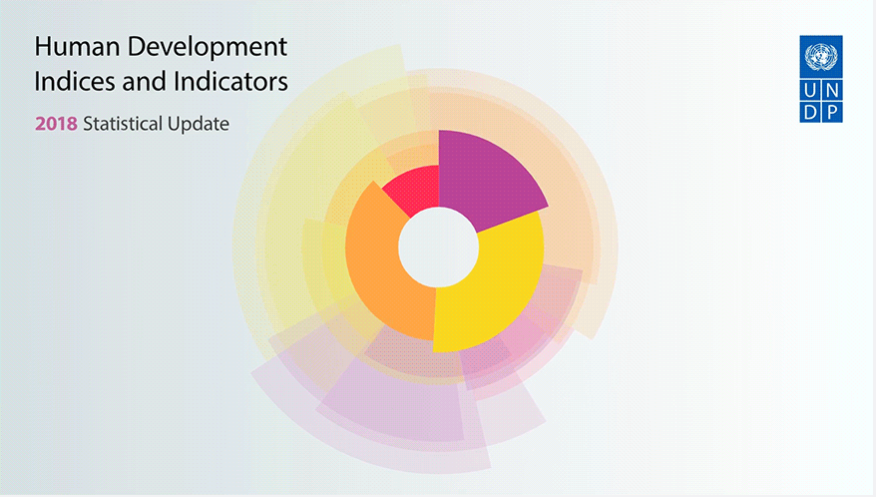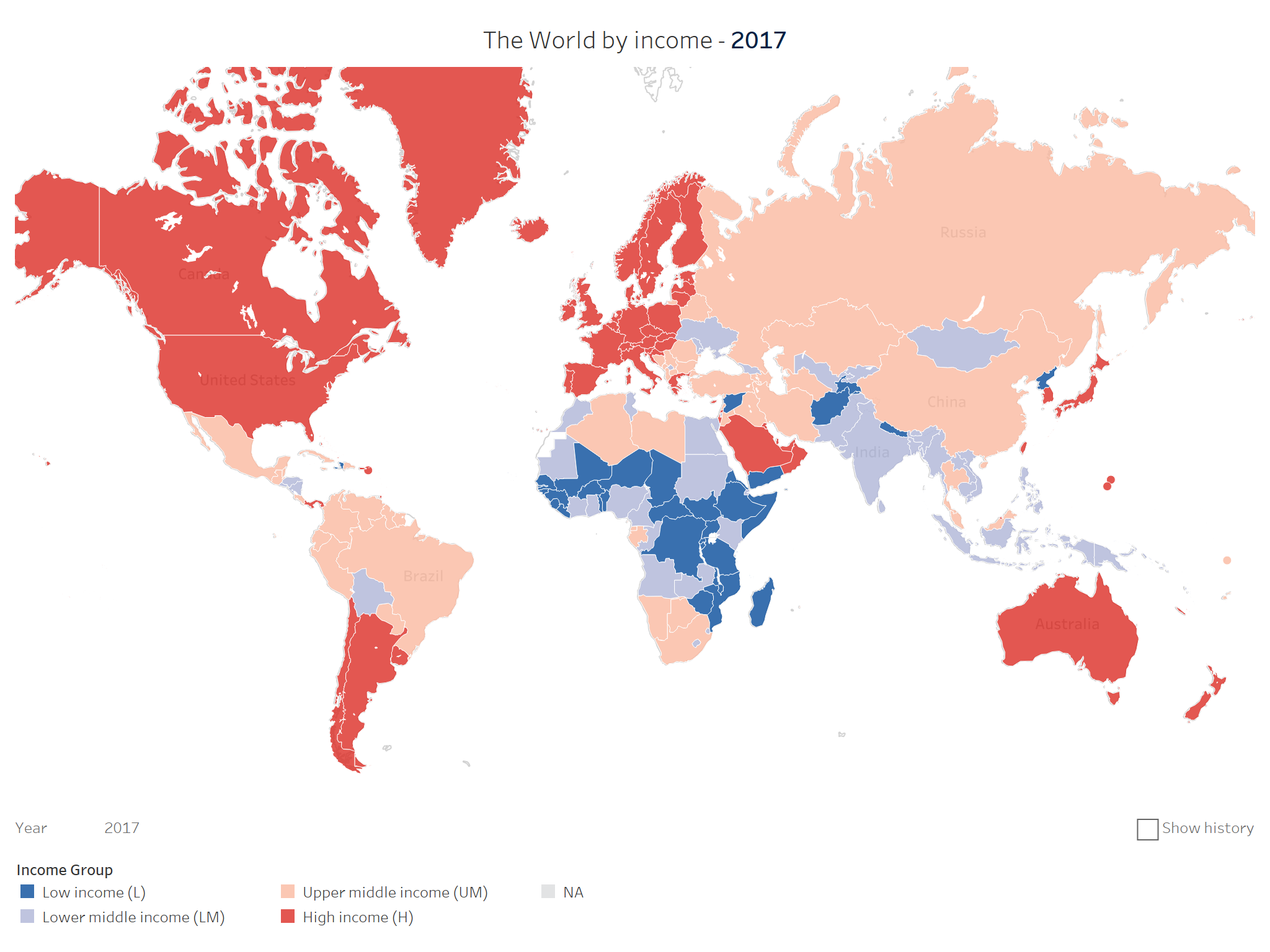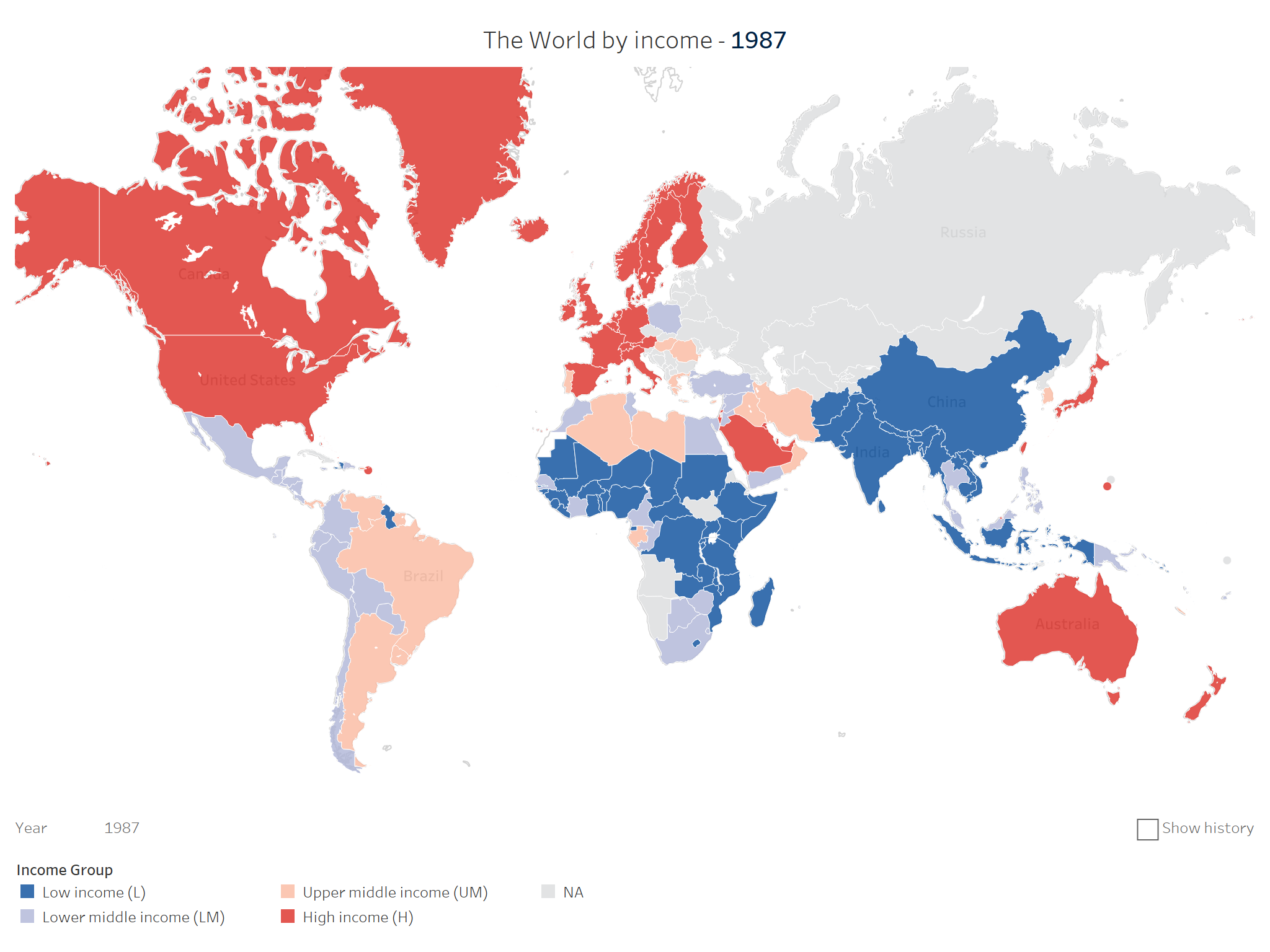






Defining Development
Define and explain the concept of human development
Defining Development
Define and explain the concept of human development
Figure 1. Dimensions of Human Development Flow Chart

Economic Development Patterns
Examine global patterns and classification of economic development
Economic Development Patterns
Examine global patterns and classification of economic development
Traditionally, a country’s level of development was made by looking at the economy, and had a dichotomous focus of rich/poor or developed/developing.
In what ways is this an outdated way of viewing human development?
The Brandt Line (Source)
MEASURING THE ECONOMY OF A COUNTRY
Income is the main method of measuring a country’s economic development. However, the way that income is calcualted can vary depending on a variety of factors.
Watch the video below and compare and contrast GDP, GNP and GNI?
In what ways are they similar and different?
HIGH, LOW AND MIDDLE INCOME COUNTRIES
The World Bank assigns the world's economies into four income groups — high, upper-middle, lower-middle, and low.
This is calculated using GNI per capita and represented by US Dollars.
Describe how the global pattern of income changed between 1987 and 2017
GLOBAL DISTRIBUTION OF COUNTRIES BY INCOME
Make a world map showing the distribution of countries by income level.
CHANGES IN INCOME CLASSIFICATION OVER TIME
Examine the graph below and describe how each country’s economic classification changed over time. Use years and GNI per capita data in your answer.

Measuring Development
Use the HDI to assess the level of development of two countries
Measuring Development
Use the HDI to assess the level of development of two countries
TASK 1: What is a “composite index” and why might it be more useful for measuring development than using one indicator like GNI per capita?
THE HUMAN DEVELOPMENT INDEX (HDI)
TASK 2: Outline what the HDI is and how the HDI measures human development
The Human Development Index (HDI) is a statistic composite index of life expectancy, education, and per capita income indicators, which are used to rank countries into four tiers of human development.
The health dimension is assessed by life expectancy at birth, the education dimension is measured by mean of years of schooling for adults aged 25 years and more and expected years of schooling for children of school entering age. The standard of living dimension is measured by gross national income per capita.
A country scores a higher HDI when the lifespan is higher, the education level is higher, and the gross national income GNI (PPP) per capita is higher.
Figure 1. How HDI is measured
COMPARING DEVELOPMENT BETWEEN COUNTRIES
TASK 3: Compare and contrast the HDI of 3 countries from the map below (1 x low, 1 x middle, 1 x high).
Explore the HDI data for a low, middle and high income country using the data on the right.
Make a document with data, graphs and pictures, which compares and contrasts levels of development for the three aspects of the HDI.
Download the “Country Explanatory Note” and use information from this to explain the differences.
Explore the data for your three countries by clicking here. Screenshot some graphs for your document.
Analyse the differences within countries using the maps below. How does HDI differ within your chosen countries?
Figure 4. HDI by country level
Figure 5. HDI within countries

Economic Activity
Classify production into different sectors and give illustrations of each
Describe and explain how the proportions employed in each sector vary according to the level of development
Economic Activity
Classify production into different sectors and give illustrations of each
Describe and explain how the proportions employed in each sector vary according to the level of development
TASK 1: CLASSIFYING EMPLOYMENT
Find out the jobs of all the parents in the class and add to a list
Categorise the jobs in any way you like
Add a key/legend
Share your ideas with the class
TASK 2: DEFINING ECONOMIC ACTIVITY
Research, define, explain and find examples of jobs for the following types of economic activity:
TASK 3: EMPLOYMENT STRUCTURE AND DEVELOPMENT
TASK 4: EXPLORING DATA FOR ECONOMIC ACTIVITY
Using the link below explore public data on economic activity for a:
low income country
middle income country
high income country
Create a document showing the evolution of economic activity for 3 countries.
Use screenshots the graphs and write a text describing the changes.
To what extent does your data match the model of economic activity presented above? Refer to data in your answer.

Globalisation
Describe and explain the process of globalisation, and consider its impacts. The role of technology and transnational corporations in globalisation along with economic factors which give rise to globalisation. Impacts at a local, national and global scale
Globalisation
Describe and explain the process of globalisation, and consider its impacts. The role of technology and transnational corporations in globalisation along with economic factors which give rise to globalisation. Impacts at a local, national and global scale
TASK ONE: DEFINING GLOBALISATION
Write the definition in the middle of a page.
Highlight parts of the definition and draw pictures around the text to illustrate each of the points.
““Globalisation is the growing interdependence of countries worldwide through the increasing volume and variety of cross-border transactions in goods and services and of international capital flows, and through the more rapid and widespread diffusion of technology.””
TASK TWO: ADVANTAGES & DISADVANTAGES
Watch the video and summarise the advantages and disadvantages of globalisation
Globalization is the worldwide movement of people, ideas, goods, and more, leading to interconnectedness on a scale never seen before.
🌍 Globalization involves the rapid and widespread movement of various elements across borders.
💡 The interconnectedness of the modern world allows for the rapid spread of ideas, products, and news.
💰 While globalization has positive effects such as increased consumer choices and reduced prices, it also widens the gap between the rich and the poor.
🌐 Governments have the option to respond to globalization by choosing how open or closed they want to be towards trade and investment.
🤝 The challenge lies in promoting the benefits of globalization while effectively helping those who are negatively affected by it.
TASK THREE: THE WINNERS AND LOSERS OF GLOBALISATION
TASK FOUR: IMPACTS OF GLOBALISATION
Read and make notes on pp 1-5 of the page below
Complete the “Test” tab
Read and make notes on pp 1-5 of the resource above
Complete the “Test” tab
CASE STUDY OF A TRANSNATIONAL CORPORATION
Create an infographic using Canva to introduce a TNC and its global links
You should include data, a map and facts about the corporation
Include some criticism of the organisation reported from the media
The first McDonalds in Russia on opening day in 1990

Case Study: A TNC and its global links
The role of transnational corporations in globalisation and impacts at a local, national and global scale.
Case Study: A TNC and its global links
The role of transnational corporations in globalisation and impacts at a local, national and global scale.
















